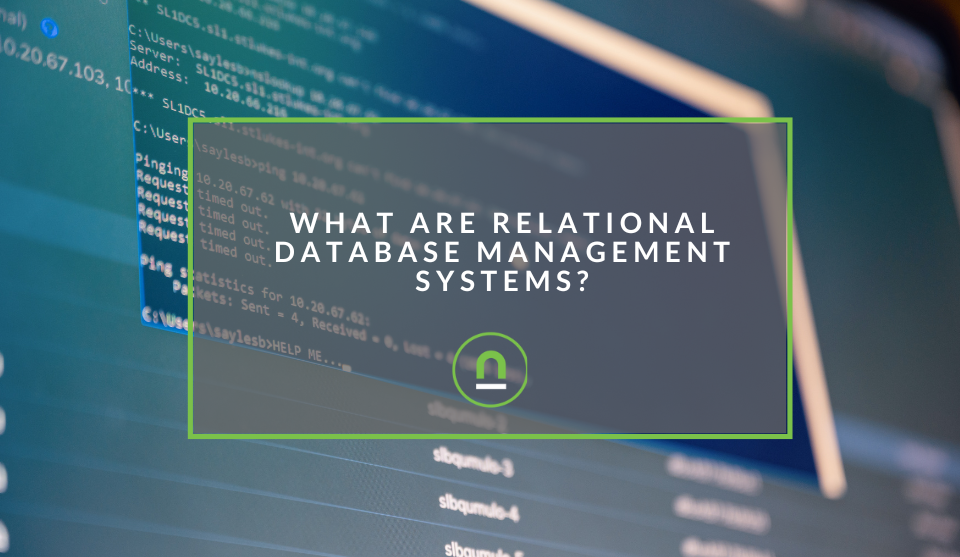Recent posts

Geek Chic
How to Replace A Broken Lenovo Laptop Screen
24 April 2025

Money Talks
Everything You Need to Know About SASSA Status Check
13 April 2025

Mind, Body & Soul
The Genetic Diversity of Cannabis Seeds
12 April 2025

Money Talks
How Small Businesses Can Leverage Blockchain Technology
02 April 2025
Popular posts
Extravaganza
Trending Music Hashtags To Get Your Posts Noticed
24 August 2018
Geek Chic
How To Fix iPhone/iPad Only Charging In Certain Positions
05 July 2020
Extravaganza
Trending Wedding Hashtags To Get Your Posts Noticed
18 September 2018
Money Talks
How To Find Coupons & Vouchers Online In South Africa
28 March 2019
What Is GEO (Generative Engine Optimization)?
01 March 2024 | 1 comments | Posted by Che Kohler in nichemarket Advice
Search has been a lucrative business for Google, the dominant player and the sherpa guiding us across the web. This single company dictates billions in user traffic and has been the web interface for most users, so any change Google makes would ripple across the web.
Search behaviours have also evolved with time; while some people still use generic keywords, they become more fragmented daily. Searchers aren't simply typing in "Juice Bar Barcelona" anymore and enjoying the ten-link search returns. They're also asking highly specific questions, using long-tail keywords and mixing up variations of keywords, which lead to behaviours missed by those looking only at keyword data and estimates.
You can still spend your time chasing exact keyword matching as sites did in the 2010s, but you will eventually hit an impression share wall.
Today's search is lightyears ahead of the previous search, depending on meta keywords and everyone and their grandmother trying to buy up as many exact match domains as possible.
Intent is king and will continue to rule as algorithms become more complex, allowing users to use natural language instead of basic keywords. Google has been the pioneer in improving search intent and matching it with accurate results, and we have a richer search experience for it (bar a few issues), but overall, search is much better.
The big LLM leap
While search has changed gradually in step functions over the years, it's now experiencing a rapid change with the introduction of Large Language models. These AI-driven front ends can provide a rich natural language experience that a page with ten links and a few images can't, and consumers love it for the time being. Apps like ChatGPT and Gemini are starting to gobble up what would once be traditional search queries, and marketers need to prepare for it.
As SEOs and web admins, we've become used to the fact that Google sets the tune, and the rest of us have to figure out how to dance to it, but for the first time in over a decade, Google has to dive into the unknown along with the rest of us.
The Rise of GEO: The Future of Search Optimization
The way we search for information is changing. Traditional search engines like Google and Bing are still incredibly relevant, but a new wave of AI-powered search is emerging, and with it comes a new way to make your content shine.
Generative Engine Optimization (GEO) is the key to unlocking visibility as these AI-driven tools change how we find information online. Google has proven humans are so lazy that scrolling is too much for them, hence the need to bring in rich snippets, answer boxes, local knowledge packs, and so much more.
The modern SERP is stacked with info-enriching blocks to try and give users the information they desire faster and in a more digestible format.
But these SERPs rely on schema markups or complex text matching and have their limitations, while something like an LLM can process your query on the fly and try to match intent on a granular level.
While most of this new form of uber long tail search happens in LLM interfaces now, Bing and Google are starting to roll it out in traditional search as an option; they dup GSE or Generative Search Experience, leading to SEOs adopting a new moniker, GEO.
Yes, as an SEO, you're forced to become an AI prompt engineer, and you won't be the only profession that will have to make the leap.
So, What IS GEO?
Think of GEO as the next step for SEO (Search Engine Optimization).
Traditionally, SEO focused on making your content appealing to search engine algorithms that produce lists of relevant websites.
However, GEO is about optimizing your content for a new generation of AI search tools that generate comprehensive, conversational answers to users' questions.
Here's how it's different:
- Traditional Search Engines: Focused on displaying relevant websites and articles.
- Generative Engines: Aim to provide a single, comprehensive, and informative answer, often summarized from several sources.
Why GEO Matters?
With generative engines (think of tools like ChatGPT or the upcoming features in Bing), the top spot in the search results isn't just about ranking anymore – it's about being the source of the answer.
GEO helps you get there, and you can bet every burned dollar on processing power. Search engines are going to force this experience on consumers, so if you're chasing eyeballs in search, you better play along.
AI search tools make your content more likely to be found, cited, and used as they generate these comprehensive responses.
Key Tactics For GEO
Here's a quick rundown of the most critical aspects of GEO:
- Authority: Back up your content with facts, data, and citations. Generative engines prioritize reliable sources.
- Clarity and Conciseness: Easy-to-understand and well-structured writing is more likely to be processed by AI.
- Focus on Answers: Consider the specific questions your content answers and make them easy for AIs to identify.
- Data and Statistics: Infusing your content with valuable data points adds to its credibility and usefulness
- Stay Updated: GEO is still a developing space! Keep up with new optimization tactics and tools as they become available.
Scenario 1: Writing a blog post about the history of bicycles
Traditional SEO:
You might focus on including relevant keywords like "history of bicycles," "bicycle inventors," and "evolution of bicycles." You'd optimize your content for search engines to understand the topic and rank your article high in searches containing these keywords.
GEO Approach:
In addition to the above, you'd also:
Answer specific questions: Anticipate the questions users might ask, like "When was the first bicycle invented?" or "Who invented the modern bicycle?" and ensure your content answers them directly.
Provide evidence and data: Support your claims with historical data, inventor citations, and potentially even visual aids like timelines or infographics.
This enhances your content's authority and trustworthiness.
Structure for clarity: Organize your content logically and concisely, using clear headings and subheadings to make it easier for AI engines to understand and process the information.
Scenario 2: Creating a product information page for a fitness tracker
Traditional SEO:
You might focus on keywords like "fitness tracker," "features," and "benefits." You'd optimize the page for search engines to understand what the product is and its key selling points.
GEO Approach:
You'd go beyond just listing features and move towards:
Emphasizing user needs: Instead of just listing "heart rate monitoring," you might address user questions like "How accurate is the heart rate monitor?" or "Does it track sleeping patterns?".
Comparative data: If possible, compare your product's features with competitor offerings, highlighting its strengths and unique value proposition. This allows AI engines to draw connections and present your product favourably in their generated responses.
Scenario 3: Building a knowledge base for customer service
Traditional approach:
You might have static FAQs or canned responses for customer inquiries.
GEO approach:
You can leverage AI-powered chatbots that:
- Understand user intent: Go beyond keyword matching and analyze the user's overall inquiry to provide the most relevant answer.
- Learn and adapt: Continuously learn from user interactions and improve their responses over time, becoming more adept at answering a wider range of questions accurately.
I want to be a cited source
The goal of GEO is to become a content pick me; yes, you want to be the cited source for the claims an LLM spits out during a user's prompting session.
How we do this is still anyone's guess, but there are already a few strategies sites are starting to play around with, such as:
- Debunking posts and going against popular opinion
- Adding more unique data sources, research, charts, graphs, and tables into their content
- Drilling down to support content for ultra-niche queries that might not have search volume in traditional search
- Creating content only for AI and having a site section of AI while blocking that section for traditional search crawlers
How well these strategies work is anyone's guess; in fact, we need to find out how much traffic LLMs will send sites and measure if it's even worth the effort, along with insight into the quality of the traffic LLMs will push to sites.
At this stage, it's way too early to tell.
Why should you consider GEO?
If you aren't keen on the AI search trend and think it will blow over, you can ignore it and continue with your traditional SEO strategies, or take the adversarial route and block LLM scrapers with your robots.txt file.
That's not to say your robots file will act as Gandolf; bots can ignore it, as AI plays in quite the grey area with very little regulation on content sourcing, as well as AI crawlers indexing your content long before you added the robots file and now they'll feign ignorance.
So, really, you can't escape it; you can choose to play into it or not, well, until the lawsuits on copywriting and content use come rolling around, but that's still up in the air.
The Future of GEO
Just like how we adapted from basic keyword strategies to today's sophisticated SEO, GEO tactics will evolve over time. The ability to consistently create high-quality, authoritative content remains crucial, but how we present and enhance that content will change.
Embracing GEO isn't about abandoning SEO - it's about evolving your approach to stay ahead of the curve as search technology marches confidently into the future.
Contact us
If you would like us to improve your link building for your site or want to know more about digital marketing for your business, then don’t be shy. We’re happy to assist. Simply contact us
Are you looking to promote your business?
Business owners can create their free business listing on nichemarket. The more information you provide about your business, the easier it will be for your customers to find you online. Registering with nichemarket is easy; all you will need to do is head over to our sign-up form and follow the instructions.
If you require a more detailed guide on how to create your profile or your listing, then we highly recommend you check out the following articles.
Recommended reading
If you enjoyed this post and have a little extra time to dive deeper down the rabbit hole, why not check out the following posts on link building.
- How To Use The Forgotten Art of Dead Link Building To Boost SEO
- How To Use April Fools As A Link-Building Tool
- How To Build Links From Journalists
- The Pain Of Link Building In Memes
- How To Use Broken Links To Earn New Links
- How To Start Reclaiming Lost Backlinks
- How To Build Links With Brand Mentions
- How To Build Local Links To Your Website
You might also like
What Are Relational Database Management Systems?
28 March 2025
Posted by Che Kohler in nichemarket Advice
Learn what relational database management systems are, how they organize data using tables and relationships, and why they remain essential for busin...
Read moreThe Genetic Diversity of Cannabis Seeds
12 April 2025
Posted by Alina Jones in Mind, Body & Soul
A look into the South African heritage of cannabis growing and how the country has taken the plant in terms of growing it into a viable industry & th...
Read more{{comment.sUserName}}
{{comment.iDayLastEdit}} day ago
{{comment.iDayLastEdit}} days ago
 {{blogcategory.sCategoryName}}
{{blogcategory.sCategoryName}}

